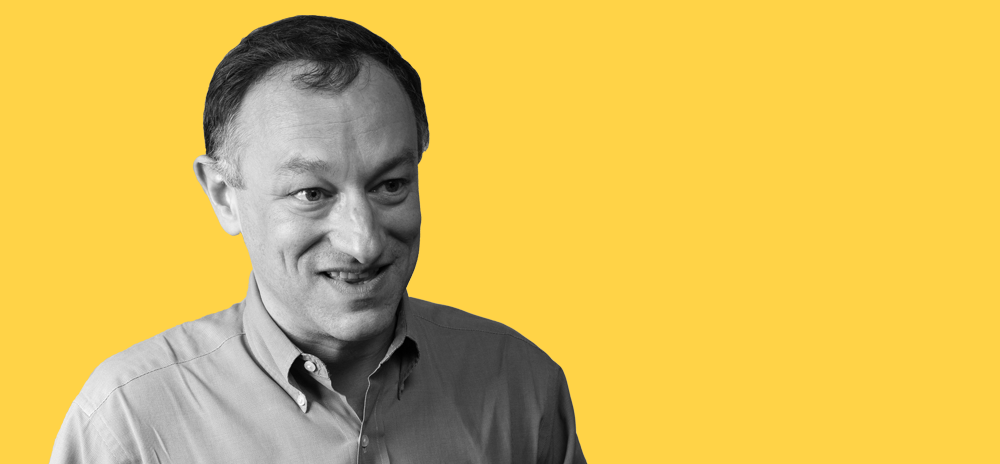
(Photography by John Zich)
UChicago’s Health Lab uses social scientific methods to address the needs of urban patients.
In March the University launched Urban Labs, which will design and test programs and policy interventions to improve the lives of the world’s city dwellers in five critical areas: education, crime, poverty, energy and the environment, and health.
Leading the Health Lab is David Meltzer, LAB’82, AM’87, PhD’92, MD’93, professor of medicine and chief of the Section of Hospital Medicine. Meltzer is affiliated with the University of Chicago Harris School of Public Policy and the Department of Economics, where he currently teaches Health Economics and Public Policy.
In 2005 he founded the interdisciplinary Center for Health and the Social Sciences (CHeSS), which he continues to direct and which will work closely with the Health Lab. His interview with the Magazine is edited and adapted below.—Laura Demanski, AM’94
Health Lab 101
We have this absolutely wonderful university with some of the greatest social sciences departments in the world, and an incredible tradition of building rigorous social science into the professions. Traditionally those have been the professions that are most obviously aligned with the social sciences: law, business, public policy, and social service administration. But we know that health has a tremendous degree of dependence on social phenomena. As we advance our understanding of how to improve health, particularly in populations, we want to grow those connections.
A vital network
The beauty of Urban Labs is the strong emphasis on rigorous experimental methods, the deep partnerships with governments, and the idea that the model is applied through five different substantive areas in social policy that are taking these shared approaches to work together and look at all the social determinants.
Side effects
When you intervene in some way through a social program, very rarely do the results affect only one dimension of society. For example, what did we learn from some of the big experiments that look at improving health insurance? There are some effects on health, but there are huge effects on financial well-being. One of the biggest outcomes of expanding Medicaid is decreasing bankruptcy rates. If you try to take just a single-sector approach on this, you’re inherently limited.
Theory to practice
Fields have a natural progression to them. When a field starts, very often it needs a theory. My most cited paper required nothing other than paper and pencil—math equations. And those math equations really mattered. But as ideas move into practice, you need data and people and infrastructure. Health economics is an absolutely essential field that has a critical applied component. And just because something has an applied component doesn’t mean it doesn’t also have deeply rich, complex potential for theoretical insights.
A problem of care …
One of the Health Lab’s first projects is the comprehensive care physician program. We’re doing a randomized trial funded by Medicare that I believe will show we can substantially reduce the cost of health care while improving outcomes for high-risk patients. The idea came out of a mathematical equation I developed to understand why doctors were now specializing in hospital care or ambulatory care, as opposed to doing both. I concluded that as medicine changed over time, people started going to the doctor more and more in order to stay well, so ambulatory clinic doctors could fill up their whole day with clinic patients but rarely admit patients to the hospital. The ambulatory doctors didn’t want to make the trip to the hospital to see one or two patients and started to give that work over to the hospitalists. Then you see disruption in the doctor-patient relationship, which is really harmful.
… and a solution
We came up with the idea of a set of doctors who only saw patients at high risk of hospitalization, but saw a small number of them. By reallocating patients and redesigning doctors’ jobs, we could create a sustainable model that allowed better care at lower cost. The model is now undergoing extraordinarily rigorous evaluation through a 2,000-person randomized trial. This enables us to produce very solid knowledge, and we’re starting to think about how to disseminate it and have an even bigger impact. It’s a wonderful project for the Health Lab: it includes all the care needs of these patients; it’s innovative; it’s being tested in a really rigorous way; and we’re looking for partners both locally and nationally with whom to further test it.
Global impact
President Robert J. Zimmer has a vision of national and international impact for the labs, and we have projects that really could do that. I just gave a talk about the comprehensive care physician model in Washington, and afterward I had three people come up to me whose interest beautifully symbolized the Urban Labs and its potential. One was from a major academic medical center in New York City; another one was from Los Angeles, another major academic medical center; and the third was someone from Qatar, all interested in adopting this model.
